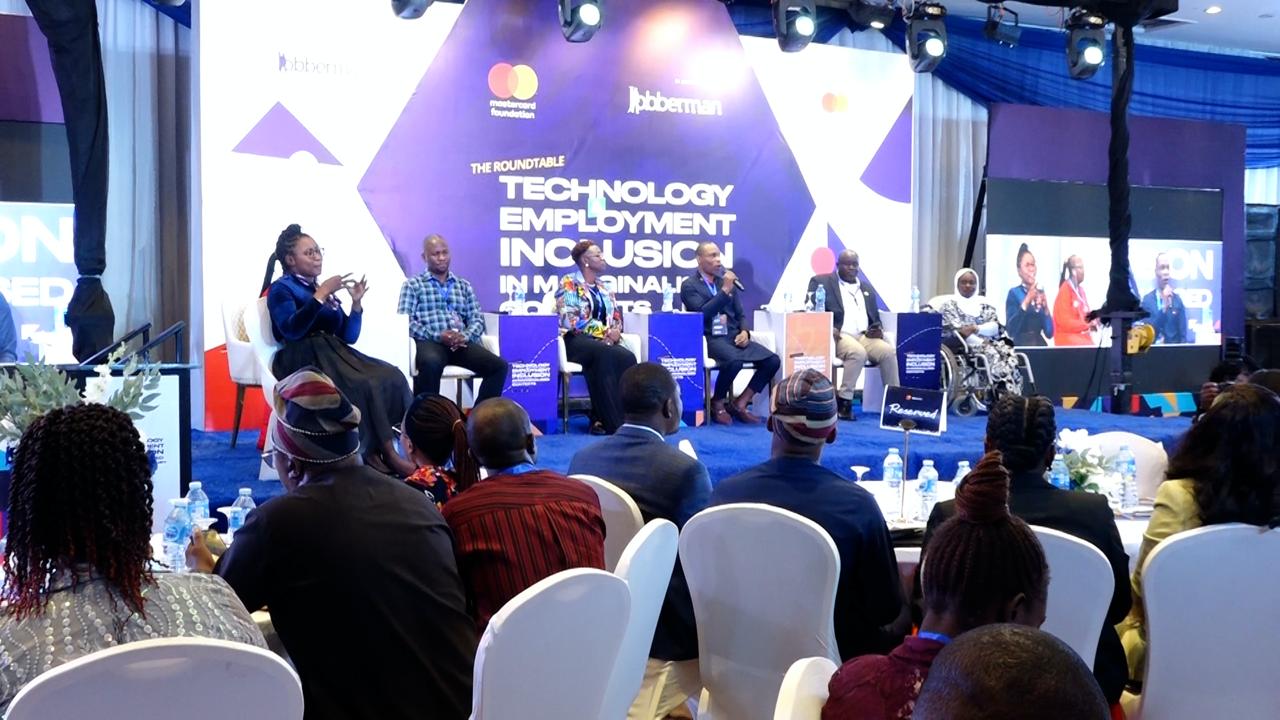FG, groups to bridge unemployment gaps among marginalised groups
By Ijeoma Olorunfemi
The Federal Government, Mastercard Foundation and Jobberman have pledged to collaborate to ensure the employment of marginalised groups in the country using new technologies.
The stakeholders made the call at a roundtable on “Technology and Employment Inclusion in Marginalised Contexts” held in Abuja on Thursday.
The roundtable was organised by Mastercard Foundation in collaboration with Jobberman, a subsidiary of the Africa Talent Company (TATC), under the Young Nigeria Works programme.
The participants identified structural, cultural and technological barriers hindering marginalised people including Persons With Disabilities (PWD) from engaging in the digital labour market.
Speaking at the event, Mr Mohammed Isa, Senior Special Assistant to the President on Special Needs and Equal Opportunities, said PWDs had continued to face systemic exclusion from employment opportunities.
Isa said that the displaced people were disconnected from digital resources while young women in underserved areas were hardly represented in tech-driven spaces.
He said he has been an advocate of the implementation of the minimum five per cent employment opportunities for PWDs in public institutions.
“We must go a step further and call for an urgent amendment to the National Disability Act to extend this quota to the private sector.
“No qualified person with a disability should be excluded from contributing meaningfully to our economy,” he said.
Ms Hilda Kabushenga, Chief Executive Officer of TATC, said that the researches showed that in reality 65 per cent of women in marginalised areas could access jobs via WhatsApp.
Kabushenga explained that technology was evolving, adding that it was important for job platforms to feature adaptive technologies for marginalised people especially PWDs.
“One of the things Jobberman has done is that we have all our courses available on WhatsApp, it costs 200 Megabytes in terms of data accessibility, it is voiced, it is presented in graphics, it’s a lot user friendly.
“If we are developing technology for people within marginalised context, think about what’s most accessible to them in terms of audibility, accessibility and usage,’’ she said.
According to her, governments can provide incentive to private sector to hire, especially PWDs and Internally Displaced Persons.
Mrs Rosy Fynn, Country Director, Mastercard Foundation Nigeria, highlighted the foundation’s commitment to inclusive economic growth.
“This roundtable aligns with our mission to enable 30 million young Africans, particularly young women, to access dignified and fulfilling work by 2030.
“Inclusion is not a side conversation, it is the main agenda and we must design systems where marginalised groups are not just considered but centred,” she said.
Mrs Temi Dalley, Group Executive, Human Capital and Corporate Services, Sterling Financial Holdings Company PLC, urged government to invest in digital infrastructure and inclusive policies.
“It starts with economic and financial reforms to empower our currency, which in turn makes smart phones more accessible and affordable.
“Businesses must embed inclusion in their technology, hiring and supply chains, while NGOs and educators must equip people with digital skills for real-world jobs,” Dalley said.
She called on tech developers and designers to build their applications and websites with equity and empathy in mind.
Mr Olamide Adeyeye, Country Head of Programmes, Jobberman, said the organisation was leveraging WhatsApp to connect employers to job seekers in marginalised groups irrespective of geographical barriers. (NAN)(www.nannews.ng)
Edited by Abdul Hassan/Uche Anunne





